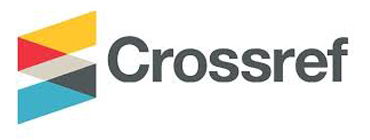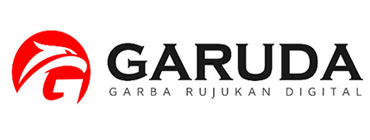Graduate Students’ Perceptions and Attitudes of Peer Assessment on Academic Writing
Abstract
The main objectives of this research are analyzed about the perceptions of graduate students in peer assessment of academic writing, the graduate students’ attitudes towards peer assessment, also challenges and benefits on graduate students’ writing in their practice of peer assessment. Thirty graduate students from different disciplines of Faculty of Educational Sciences at Syarif Hidayatullah State Islamic University were enrolled to participate in this research. The current study adheres to the qualitative method, and its data collected via two questionnaires of perception and attitude toward peer assessment, and semi-structured interviews with the tenth graduate students selected voluntarily. Findings showed that the graduate students’ perception and attitude towards peer assessment is slightly positive. In addition, the benefits of peer assessment are increased learning, transferable skills, authentic assessment, feedback skills, understanding standards, and peer assessment provided learning from others and team-group while the challenges of peer assessment are lacked time and cost needed, graduate students’ motivation, and feedback skills.
Full Text:
PDFReferences
Arsyad, S., & Adila, D. (2018). Using local style when writing in English: the citing behavior of Indonesian authors in English research article introductions. Asian Englishes, 20(2), 170- 185.
Bagci Ayranci, B., & Mete, F. (2017). Evaluation of Teacher Candidates Writing Skills. Educational Research and Reviews, 12(24), 1253-1259.
Balu, R., Alterman, E., Haider, Z., & Quinn, K. (2018). Student Writing, Teacher Feedback, and Working Online: Launching the Drive to Write Program. MDRC.
Barrett, C., & Wright, R. (2017). From Error Correction to Meaning Making: Reconstructing Student Perceptions of Revision. i-Manager’s Journal on English Language Teaching, 7(4), 16.
Denscombe, M. (2014). The good research guide: for small-scale social research projects. McGraw-Hill Education (UK).
Hoffman, B. (2019). The influence of peer assessment training on assessment knowledge and reflective writing skill. Journal of Applied Research in Higher Education. Lee, K. L., & Norbaizura, M. N. (2016). Assessment for Learning: Students’ perception on peer review in a private university. In Assessment for Learning within and Beyond the Classroom (pp. 199-210). Springer, Singapore.
Lyman, M., & Keyes, C. (2019). Peer-Supported Writing in Graduate Research Courses: A Mixed Methods Assessment. International Journal of Teaching and Learning in Higher Education, 31(1), 11-20.
Nasution, P. T., & Lubis, J. H. (2023). RELEVANCE OF CHANGES IN THE INDEPENDENT CURRICULUM TO STUDENT ACHIEVEMENT. EXCELLENCE: Journal of English and English Education, 3(2), 65-72.
Nasution, P. T., & Wahyuni, A. (2023). THE IMPACT OF CURRICULUM CHANGES ON THE ROLE TEACHER IN SCHOOL. EXCELLENCE: Journal of English and English Education, 3(2), 58-64.
Seifert, T., & Feliks, O. (2019). Online self-assessment and peer-assessment as a tool to enhance student-teachers’ assessment skills. Assessment & Evaluation in Higher Education, 44(2), 169-185.
Sridharan, B., Tai, J., & Boud, D. (2019). Does the use of summative peer assessment in collaborative group work inhibit good judgement?. Higher Education, 77(5), 853-870.
Stegmann, K., F. Pilz, M. Siebeck, and F. Fischer. 2012. “Vicarious Learning during Simulations: Is it More Effective than Hands-on Training?” Medical Education 46 (10): 1001–1008.
To, J., & Panadero, E. (2019). Peer assessment effects on the self-assessment process of first-year undergraduates. Assessment & Evaluation in Higher Education, 44(6), 920-932.
Wanner, T., & Palmer, E. (2018). Formative self-and-peer assessment for improved student learning: the crucial factors of design, teacher participation, and feedback. Assessment & Evaluation in Higher Education, 43(7), 1032-1047.
Xu, Q., & Yu, S. (2018). An Action Research on Computer-Mediated Communication (CMC) Peer Feedback in EFL Writing Context. The Asia-Pacific Education Researcher, 27(3), 207-216.
Yang, Y. F. (2018). New language knowledge construction through indirect feedback in web based collaborative writing. Computer Assisted Language Learning, 31(4), 459-480.
Yu, S., & Hu, G. (2017). Can higher-proficiency L2 learners benefit from working with lower proficiency partners in peer feedback?. Teaching in Higher Education, 22(2), 178-192.
Zhao, H. (2018). Exploring tertiary English as a Foreign Language writing tutors’ perceptions of the appropriateness of peer assessment for writing. Assessment & Evaluation in Higher Education, 43(7), 1133-1145.
Refbacks
- There are currently no refbacks.
INDEXING
Jurnal Tarbiyah by UIN Sumatera Utara Medan is licensed under a Creative Commons Attribution-NonCommercial-ShareAlike 4.0 International License.
Based on a work at http://jurnaltarbiyah.uinsu.ac.id/index.php/ami.
Permissions beyond the scope of this license may be available at http://jurnaltarbiyah.uinsu.ac.id/index.php/ami/about/submissions#copyrightNotice.
Sekretariat: Jl. William Iskandar Ps. V, Medan Estate, Kec. Percut Sei Tuan, Kabupaten Deli Serdang, Sumatera Utara 20371







